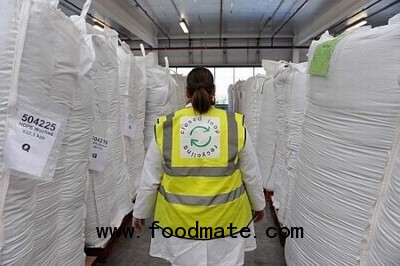The innovative recycler, who was the first in the world to recycle both PET and HDPE plastic bottles into food grade material for new food and drink packaging, is implementing a major expansion which will double the supply of recycled HDPE to the UK market, more than meeting the expected demand from the dairy industry as it works towards higher recycled content targets.

The investment in new infrastructure will make Closed Loop Recycling the biggest recycler of milk bottles in the world. It will increase capacity at the Dagenham-based plant to 55,000 tonnes per annum, creating the most advanced plastics purification facility in the UK and diverting a further 30,000 tonnes of carbon emissions in the process.
"Recycled milk bottles are a massive win for the circular economy,” explains Chris Dow, CEO of Closed Loop Recycling. “The increased demand for recycled content is an example of the whole industry working together – retailers, producers, brands and industry bodies – to implement an ambitious plan. This has created a sustainable business model with enormous potential for the future.
“There has been a huge commitment from the companies in this sector, including our customers, who have invested in technology and plants to complete the HDPE recycling loop. I am confident that our expansion will bring the 2020 target of 50% recycled material in plastic bottles closer,” continues Dow.
Dr Liz Goodwin, chief executive of WRAP comments: “Closed Loop Recycling’s expansion in order to meet forecast demand for recycled content in milk bottle packaging is the perfect example of how businesses can work together to achieve the economic and environmental benefits of a circular economy. It’s great to see circular economy ideas being converted into positive action.”
Closed Loop Recycling is implementing an awareness campaign with local authorities to increase collection rates of milk bottles. This will support the ongoing goals of the Dairy Roadmap whereby dairy processors, farmers and retailers are working together with government to develop a raft of environmental improvements within the dairy industry.
Closed Loop Recycling has been at the forefront of the UK plastic recycling industry which has gone from almost zero to £60 million in just five years and this multi million pound investment in new infrastructure will further enable the company take real action to support Britain’s challenging waste stream.
As a result of a joint agreement with the London Thames Gateway Development Corporation (LTGDC), Closed Loop Recycling has leased an additional three acres adjacent to its existing Dagenham site to help facilitate any future expansion, in order to realise its ambitious growth plans and meet demand for recycled food grade products.
Closed Loop Recycling’s Dagenham plant has been operating since December 2008. Its current capacity allows the production of 35,000 tonnes of mixed plastic bottles, producing 11,000 tonnes of rPET and 6,000 tonnes of rHDPE per annum.





